climatechange
Latest

California plans to launch its own climate satellite
The current White House doesn't accept climate science, and California is worried that this may lead to NASA switching off climate probes under pressure from President Trump. The state's solution? Build its own probe. In a speech at the Global Climate Action Summit, Governor Jerry Brown declared that California would launch its "own damn satellite" to detect pollution and address climate change. While he hinted at the possibility in 2016 remarks, it's more than just an allusion this time. The state is working with Planet Labs on the project, and will rely on the California Air Resources Board for further help.
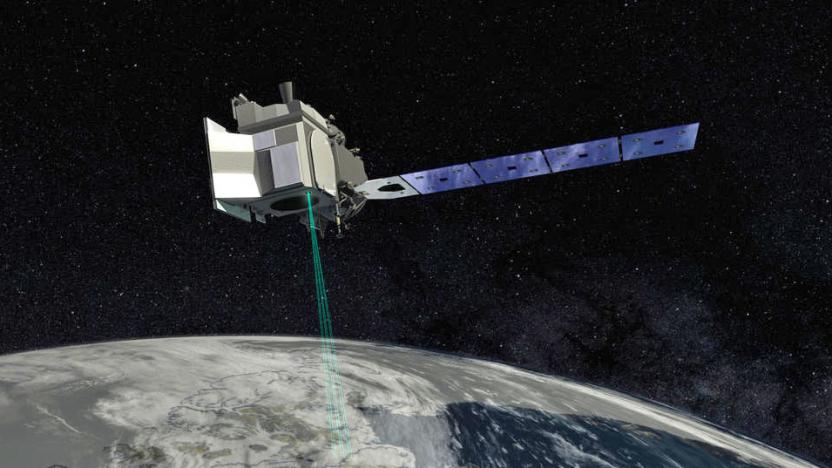
NASA will launch its ice-tracking satellite ICESat-2 on Saturday
On Saturday, NASA will attempt to launch its Ice, Cloud and land Elevation Satellite-2, or ICESat-2, a satellite that will help researchers measure the height of natural features on Earth. With the help of a powerful on-board laser, ICESat-2 will measure changes in Earth's ice across seasons and years. "Retreating glaciers. Shrinking sea ice. Melting ice sheets. The frozen reaches of Earth are changing at dramatic rates," NASA said, "and the impacts, from sea level rise to altered weather patterns, span the planet." So ICESat-2's mission is to collect incredibly precise measurements of Earth's ice as well as the heights of other features like forests, oceans and clouds.

These robotic 'trees' can turn CO2 into concrete
Climate change is killing our planet. The excess production of carbon dioxide and other greenhouse gasses are filling the atmosphere and warming the Earth faster than natural processes can effectively negate them. Since 1951, the surface temperature has risen by 0.8 degrees C, with no sign of slowing. So now it's time for humans to step in and rectify the problem they created -- by using technology to suck excess CO2 straight from the air.

Facebook aims to power its operations with renewable energy by 2021
Facebook announced today that it plans to power its global operations entirely with renewable energy by the end of 2020. It also committed to reducing its greenhouse gas emissions by 75 percent within that same timeframe. "We bring an open and innovative approach to finding renewable energy solutions that fit our needs and can move energy markets forward," the company said in a statement. "We do this by working to enable access to renewable energy resources for other companies and organizations by building infrastructure, opening projects to other buyers or establishing green tariffs, which allow customers to buy renewable energy from their local utilities."

'Minecraft' mod fosters a collaborative effort against climate change
A Minecraft modder has added some fresh gameplay issues for players to deal with in the form of climate change. Nick Porillo's GlobalWarming mod alters the atmosphere based on certain actions like smelting ores. Temperatures will rise as carbon emissions increase, leading to violent storms, forest fires and a drop in snowfall levels as climate change takes hold.
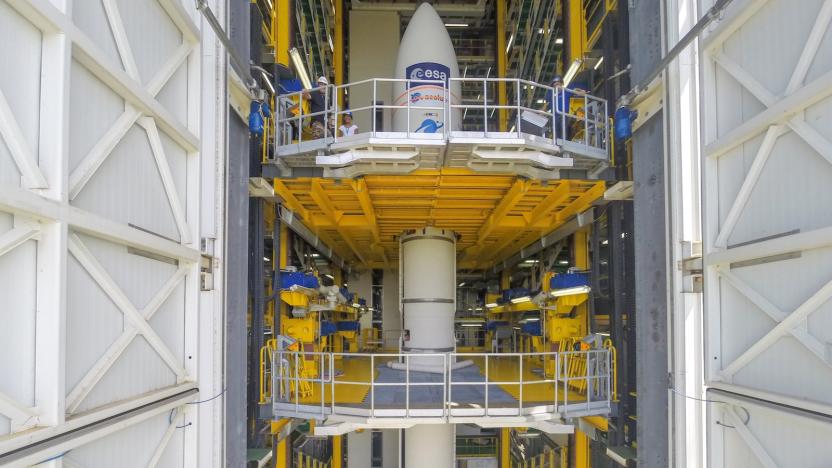
Watch the ESA launch its wind-mapping Aeolus satellite at 5PM ET
The European Space Agency is launching its Aeolus wind-mapping satellite today from the Guiana Space Center in Kourou, French Guiana. Once in orbit, Aeolus will measure winds from the Earth's surface up to the stratosphere using powerful lidar technology, and it will do so on a global scale. The data Aeolus collects will help improve weather forecasting and provide valuable information for climate change research.

Google works with the UN to monitor environmental changes
Google is partnering with the United Nations to help measure the impact of human activity on ecosystems around the world. The project, which launches today, will provide real-time data to organizations and countries looking to plan and direct actions in response to quickly changing environmental conditions. The goal is that, with free access to this valuable data, more countries will pursue sustainable development.

Ontario kills EV subsidies to reduce gas prices
Last month, Ontario elected a new provincial government; Doug Ford's Conservative Party, which has already begun enacting its key policies. That includes an immediate end to an electric and hydrogen vehicle subsidy, as well as incentive programs for EV chargers. The aim? To gut a cap-and-trade program that was designed to encourage folks to ditch their planet-killing gas guzzlers.
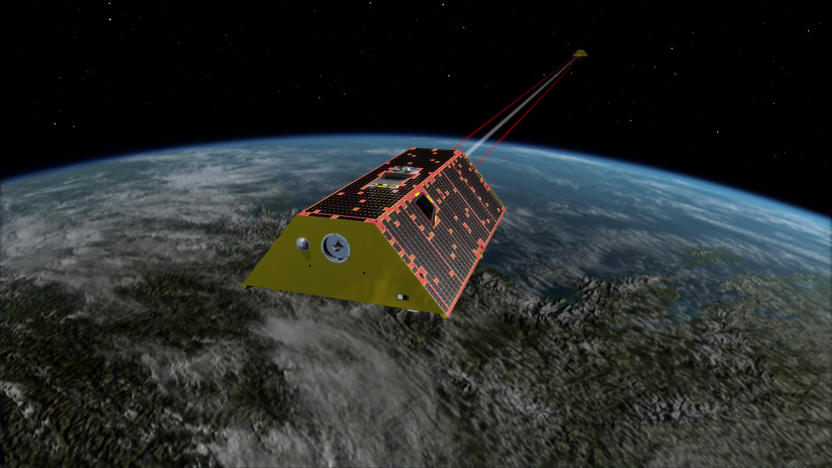
NASA's new climate science satellites switch on their lasers
NASA's new climate-monitoring satellites, which SpaceX ferried to orbit in May, are almost ready to keep an eye on our planet's ice sheets, atmosphere and ocean levels. On June 13th, the twin Gravity Recovery and Climate Experiment Follow-On (GRACE-FO) satellites switched on their lasers in search of one another for the first time. Those lasers will keep the satellites connected to each other while they orbit the Earth, tracking the changes in distance between them brought about by variations in our planet's gravitational field. That data, in turn, will help scientists better understand and monitor the thinning of the ice sheets, rising sea levels and even the flow of magma underground.

11 states sue EPA over attempt to reverse ban on ozone-harming HFCs
The Scott Pruitt-era EPA is facing yet more legal action over its attempts at reversing US environmental regulations. A group of 11 states (including New York and California) and the District of Columbia have sued the EPA for violating the Clean Air Act by "effectively" lifting a ban on climate-changing hydrofluorocarbons (HFCs). The states contend that the agency's April "guidance" document illegally removed the entire HFC ban rather than going through the necessary public rulemaking process.
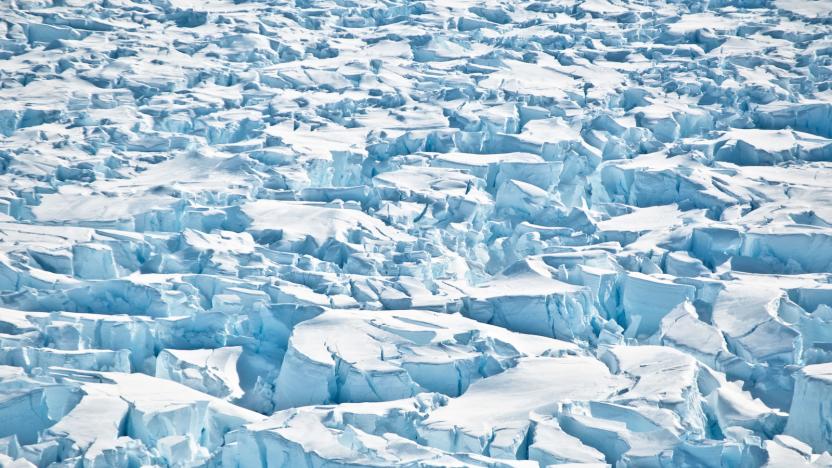
Antarctica is losing ice at an increasingly rapid rate
Antarctica is losing ice at an increasingly rapid rate, according to a new study published today in Nature. More than 80 researchers from 42 international organizations presented findings that show between 2012 and 2017, Antarctica's ice sheet lost 219 billion tons of ice per year -- triple the rate prior to 2012. Between 1992 and 2017, ice losses in the region contributed to a global sea level rise of 7.6 millimeters, with forty percent of that rise occurring in the last five years alone.

Ocean waves show Earth's CO2 imbalance is greater than expected
Scientists might need to tweak their understanding of climate change in the near future. British researchers have determined that ocean waves play a considerably more important role in trapping carbon dioxide than previously thought. Their studies showed that waves breaking on the shore will absorb a large number of bubbles at depths of "at least" 3.3 feet, releasing CO2 when they dissolve into the water. That, in turn, suggests the ocean is absorbing "many times" more CO2 than under current estimates.

Today’s SpaceX launch will help NASA monitor climate change
Today, SpaceX is scheduled to launch a previously flown Falcon 9 rocket from Vandenberg Air Force Base in California. Liftoff is currently scheduled for 3:47 PM ET (12:47 PM PT). The payload includes five Iridum NEXT communication satellites and a pair of Earth-observing satellites called GRACE-FO; you can watch liftoff below.

Russia launches floating nuclear power plant on Baltic Sea (updated)
Multiple nations, including China and the US, have pursued offshore or floating nuclear reactors, and now Russia will give it a go. Russia has launched a floating nuclear power plant or its own, the 70-megawatt Academik Lomonosov, on the Baltic Sea. Starting from St. Petersburg, it will be towed around Norway to a Russian town called Murmansk to take on nuclear fuel. From there, it will head to the Arctic to power the oil-industry town of Pevek, along with a desalination plant and drilling rigs.

Google wants the Clean Power Plan to stick around too
If we don't want the seas to boil and the skies to burn, we need to stop polluting the world with climate altering gases. Unfortunately, the Environmental Protection Agency is planning to gut the Clean Power Plan, legislation aimed at curbing America's carbon emissions by almost a third by 2030. And it's something that, like Apple, Google has decided to fight, making a public statement in support of the Clean Power Plan just before the deadline closed.

EPA wants to roll back Obama-era auto efficiency guidelines
Under the Obama administration, the EPA instituted a set of goals for automakers aimed at improving vehicle efficiency and reducing greenhouse gas emissions. The terms state that companies have until 2025 to get their fuel efficiencies up to a fleet average of 51.4 miles per gallon. But automakers have been asking Donald Trump to change those regulations ever since he took office and now it looks like the EPA will attempt to relax those standards.

Floating calcium 'sun shield' could protect the Great Barrier Reef
Scientists in Australia are testing a new technology that may help protect the endangered Great Barrier Reef from environmental degradation. An ultra-fine biodegradable film, 50,000 times thinner than a human hair, could be used as a floating "sun shield" to protect the reef from the effects of coral bleaching.

Trump’s science and tech report focuses on deregulation
Today, the Office of Science and Technology Policy (OSTP) released a report on what it considers to be the Trump administration's achievements in advancing science and tech over the past year. "The Trump administration is committed to advancing technological development and conducting research and development to ensure national security, grow the economy, create well-paying jobs and improve the lives of Americans across this great nation," says the report. "Over the past year, OSTP has led coordinated administration efforts to promote emerging technologies, empower Americans to innovate and defend American technologies abroad."

Trump reportedly seeks massive budget cuts to clean energy research
The Trump administration has made it very clear that it is pro fossil fuels and has little interest in pushing programs the promote renewable energy. Now, the Washington Post reports that the president's proposed 2019 budget slashes funds for Energy Department programs focused on energy efficiency. While the proposal is just a jumping off point, the fact that it seeks to cut such funding by 72 percent underscores where the administration's interests lie and in which direction its policies will continue to go.
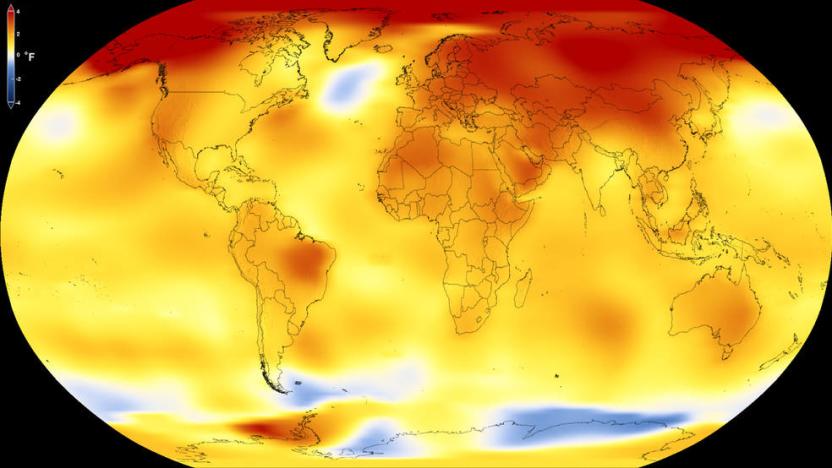
NASA: 2017 was Earth’s second-warmest year since 1880
After careful analysis, NASA has declared that 2017 was the second-warmest year since the end of the 19th century. In a separate study using different analytical methods, National Oceanic and Atmospheric Administration (NOAA) ranked last year as the third-warmest in their records. But both agree that the globe has experience its five hottest years since 2010.









